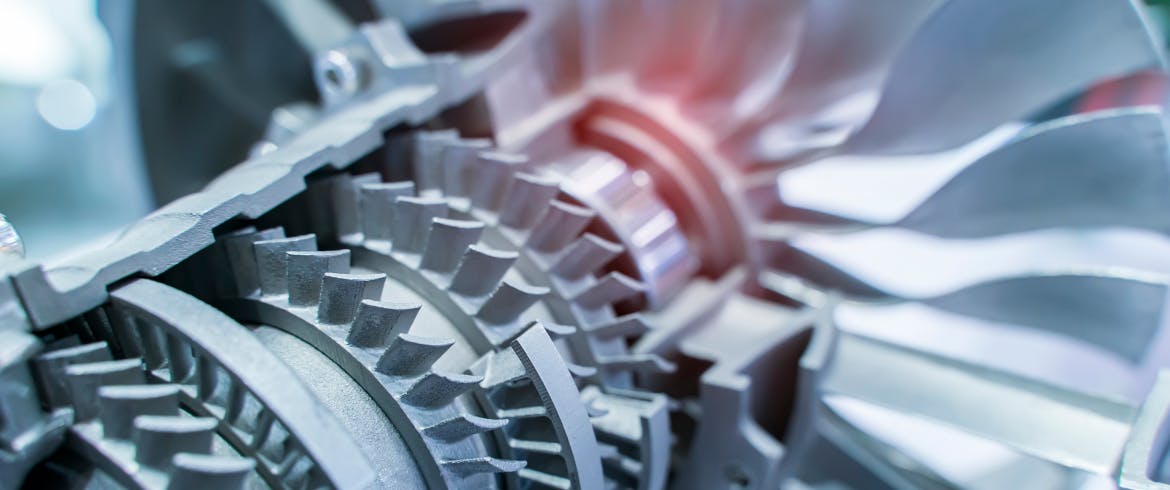
Key Aircraft Maintenance Industry Trends & Developments in 2024
Our VP of Sales, Amada Martinez Jaco answered a few questions on the MRO outlook for 2024.
Parts of this interview were included in AviTrader's feature on the topic in its latest issue of MRO Aerospace Magazine (page 22).
What are the key trends and developments that you foresee shaping the aircraft maintenance industry in 2024?
Technology will play an increasingly significant role.
Specifically, Artificial Intelligence (AI) is emerging as a tool to significantly improve operational performance. While the aerospace industry has historically lagged behind other industries when it comes to modernizing itself with new technologies, the application of AI will change all of that.
One of the biggest opportunities is to address the industry’s labor shortages, particularly in skilled areas such as parts sourcing and procurement which have significant impacts on operational performance. AI can assist purchasing teams and increase productivity by automating many of these processes by leveraging structured data.
Currently using traditional methods, due to the complexity of the industry, and the constraints set by manual processes, an aircraft parts buyer is only able to process 10-20 purchases per day. AI helps to overcome these limitations by performing countless purchases in a matter of minutes, while also improving performance, achieving optimal pricing and delivery.
More specifically, AI can handle transactional purchases (i.e. basic parts orders) that don’t require human ingenuity. This then allows employees to focus their attention where it is needed - more complex tasks and strategies.
The organizations that will be most successful are those that manage to successfully marry together human expertise with artificial intelligence. It’s not a matter of human OR machine, but human AND machine. AI can help preprocess the vast amounts of data needed to make the correct purchasing decision while working with the buyer to “Curate” the outcomes to the optimal solutions.
AI turns human buyers into “super buyers” being able to process hundreds or thousands of part requirements in one go. While AI focuses on the majority of purchases, human buyers can save their time for the most complex issues and strategic tasks.
Has the MRO industry fully recovered from the COVID-19 pandemic?
One of the lasting effects of the COVID-19 pandemic is the shake-up caused by the supply chain. This has certainly been felt in the MRO industry with fluctuating prices and parts availability, all playing a significant role in the overall recovery.
Most regions, maybe except China which was still under travel restrictions in 2022, have had a financial turnaround with improvement in profitability and increased passenger demand.
More people flying on more aircraft leads to more aircraft that need to be served for maintenance and more aircraft being ordered.
For example, at the Paris Air Show, leading manufacturers Airbus and Boeing had 1000 aircraft ordered combined only in the first 2 days of the event. The Airbus order set a new record for the manufacturer.
According to Visiongain Reports Ltd, the global top 20 commercial aircraft maintenance, repair & overhaul (MRO) market was valued at US$83.0 billion in 2022 and is projected to grow at a CAGR of 4.3% during the forecast period 2023-2033.
We’re certainly heading in the right direction as an industry with our brightest days still ahead.
Sustainability and environmental concerns are becoming increasingly important. How is the aircraft maintenance industry addressing these issues, and what initiatives can we expect in 2024 to make aviation more environmentally friendly?
One of the big goals of the industry is to become carbon neutral. IATA has established Fly Net Zero – an initiative for airlines to achieve net zero carbon emissions by 2050, so there is a real focus here.
Consumer demand for eco-friendly transportation options and advances in science and technology (such as SAFs and operational-optimizing software) will lead to the aviation industry making tangible strides in sustainability.
By leveraging new technologies and a better understanding of data, airlines will become more efficient and less wasteful, from operations and maintenance to commercial functions and airside tasks. Specifically looking at aircraft maintenance, airlines, and MROs can optimize their parts procurement process more efficiently.
For example, by having a better understanding of the market and knowing what parts are available and where they are located, components can be sourced from suppliers closer to the location where the part is needed and purchase orders can be optimized to reduce the number of orders (i.e. being from one supplier instead of three).
By better understanding their operations, MROs and airlines can carry fewer unused parts and cut down on the need to expedite shipping, which will lead to a significant reduction in waste.

Choose the service level you need and scale up and down as needed. You'll pay for everything your aircraft material procurement process needs and nothing it doesn’t – no risky contracts and frivolous add-ons.
